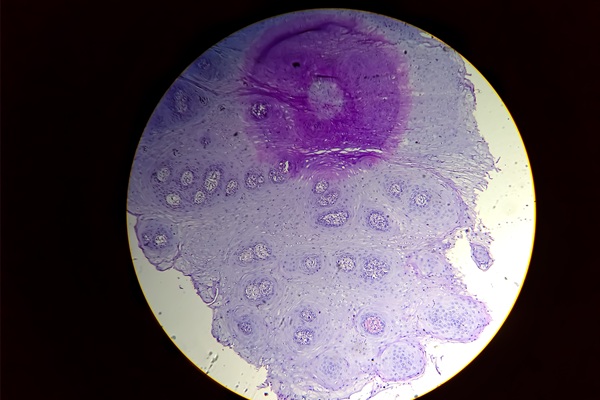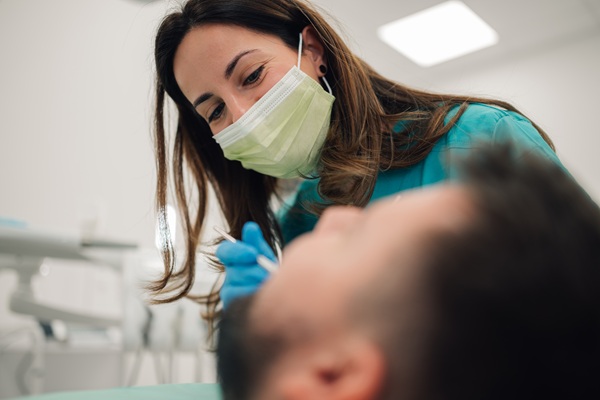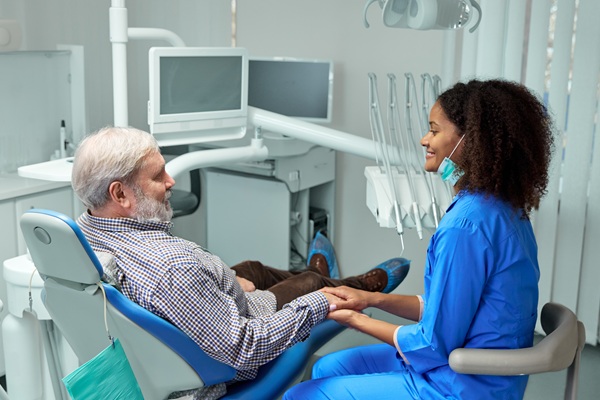How To Prepare For An Oral Cancer Screening

An oral cancer screening does not require any special preparation. However, preparation can help patients who are nervous about the visit or simply would like to know more about what to expect and how they can get the most out of the visit. This review offers insights into how you can prepare for an oral cancer screening.
Preparation tips before an oral cancer screening
You can prepare for an oral cancer screening by scheduling at a convenient time, educating yourself on how the screening works and preparing a list of questions to ask the general dentist. The following is a closer look at each preparation tip.
Schedule at a convenient time
An oral cancer screening does not take long, and most visits take less than an hour. However, it is still important to schedule at a time that is convenient for you. Therefore, take into consideration your work and personal schedule and ensure you are able to make it into the visit without postponing or canceling, barring any unexpected circumstances that arise. This is particularly useful for patients who are dealing with anxiety, as putting yourself in a position where you do not have to rush can reduce stress levels.
Learn what to expect during the visit
One effective way to prepare for an oral cancer screening is to learn more about what to expect during the visit. Of course, each dentist has their own process when conducting an oral cancer screening, but the process typically involves a detailed oral examination, dental X-rays and possibly the use of an oral cancer screening dye or light, along with a review of the patient’s dental history and reported symptoms.
Common symptoms that the dentist will check for during the visit include discolored (white or red) patches inside the mouth and anything that may cause discomfort to the jaw, ear, teeth or neck.
Prepare a list of important questions
Many patients make the mistake of forgetting to ask questions that are important to them during their visit. To avoid this concern, prepare a list of questions to ask the dentist before you leave for your visit. These questions may be in regard to early signs of oral cancer to watch for at home and how to reduce the risk of oral cancer, along with any general dentistry questions you have as well.
Discuss dental anxiety with the dentist
There is no need to be nervous about an oral cancer screening, as it is non-invasive. However, some patients experience dental anxiety before their visit, particularly if they have signs that they feel may indicate oral cancer. Discuss your concerns with the dentist and their team, and they can help you remain comfortable during your visit.
Oral cancer screenings help detect signs of oral cancer early
You can schedule an oral cancer screening with our dental team by giving us a call today. We encourage annual oral cancer screenings, and our friendly team makes the process as easy and convenient as possible for all patients.
Request an appointment here: https://familydentistprescott.com or call Joseph A. Savoini D.M.D., P.C. at (928) 297-3040 for an appointment in our Prescott office.
Check out what others are saying about our dental services on Yelp: Oral Cancer Screening in Prescott, AZ.
Recent Posts
Thinking about getting an oral cancer sceening? Oral cancer screenings are a very important part of general dental care as they ensure the health of patient's oral cavity. They involve a few steps that are typically painless. Understanding the process of an oral cancer screening can be helpful for patients who are not sure what…
Most dental issues (predominantly tooth decay and gum disease) are caused by plaque, a sticky bacterial film. Continue reading to learn how tooth decay and gum disease are connected. This is why bacterial plaque is often the focus of rigorous at-home oral care regimens and regular dental exams.Plaque bacteria thrive by coexisting in areas where…
Red, inflamed or swollen gums are often the sign of gingivitis, the first stage of periodontal disease or worse still, periodontitis. Plaque is the most common cause of the condition, but there are several others that can cause gum infection.The following are some of the common ways to get gum disease:Gum disease is usually caused…
Gum disease is a progressive condition that is caused by bacteria in the mouth getting into gum tissues. Your immune system responds to this invasion by sending off antibodies to fight off the invaders. The ensuing battle leads to inflammation and damage to the structures that support teeth.The first stage of gum disease is called…


